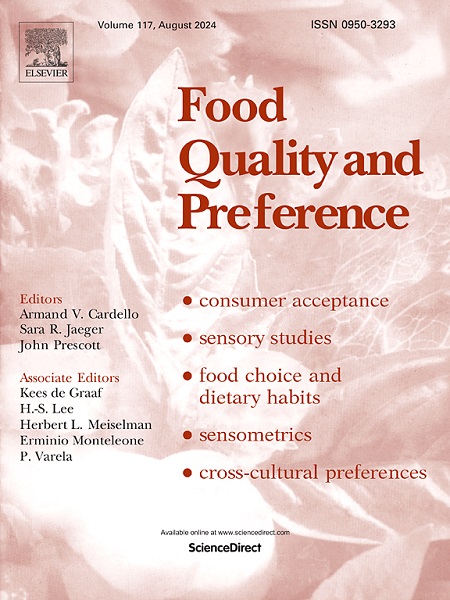食物浪费信息框架有助于促进购买次优马铃薯
IF 4.9
1区 农林科学
Q1 FOOD SCIENCE & TECHNOLOGY
引用次数: 0
摘要
按照注重美观的规范,大量农产品在进入超市之前就已经在食品价值链中被丢弃。其中一个例子就是新鲜马铃薯,只有大约 50%的马铃薯到达消费者手中。在本研究中,我们通过一项在线研究(N = 481,51% 为女性)来探讨食物浪费信息框架是否能使次优土豆对消费者更具吸引力。在实验部分,我们采用了 2 × 2 设计(环境 × 信息)。我们向参与者展示了超市或农家商店的环境,其中有或没有食品浪费信息。他们在最优马铃薯 A、次优马铃薯 B 或两者之间做出选择。两种土豆的价格相同。我们发现,随着食物浪费信息的增加,参与者选择次优土豆的意愿显著增加(分别为 25% 至 41% 和 29% 至 46% )。我们的结果表明,提供食物浪费信息框架有助于推广次优马铃薯。本文章由计算机程序翻译,如有差异,请以英文原文为准。
A food waste information-framing can help promote purchase of suboptimal potatoes
Following specifications focusing on aesthetics, huge quantities of produce are discarded along the food value chain even before reaching the supermarket. One example is fresh potatoes, where only around 50% of the potatoes produced reach the consumer. In this study, we used an online study (N = 481, 51% women) to investigate whether food waste information-framing can make suboptimal potatoes more appealing to consumers. In the experimental part, we used a 2 × 2 design (setting × information). Participants were presented with either a supermarket or farm shop setting with or without food waste information. They chose between optimal potato A, suboptimal potato B, or neither. Both potatoes were equally expensive. We found that the participants’ willingness to choose suboptimal potatoes increased significantly with food waste messages (25% to 41% and 29% to 46%, respectively). Our results show that the provision of food waste information-framing can help promote suboptimal potatoes.
求助全文
通过发布文献求助,成功后即可免费获取论文全文。
去求助
来源期刊

Food Quality and Preference
工程技术-食品科技
CiteScore
10.40
自引率
15.10%
发文量
263
审稿时长
38 days
期刊介绍:
Food Quality and Preference is a journal devoted to sensory, consumer and behavioural research in food and non-food products. It publishes original research, critical reviews, and short communications in sensory and consumer science, and sensometrics. In addition, the journal publishes special invited issues on important timely topics and from relevant conferences. These are aimed at bridging the gap between research and application, bringing together authors and readers in consumer and market research, sensory science, sensometrics and sensory evaluation, nutrition and food choice, as well as food research, product development and sensory quality assurance. Submissions to Food Quality and Preference are limited to papers that include some form of human measurement; papers that are limited to physical/chemical measures or the routine application of sensory, consumer or econometric analysis will not be considered unless they specifically make a novel scientific contribution in line with the journal''s coverage as outlined below.
 求助内容:
求助内容: 应助结果提醒方式:
应助结果提醒方式:


